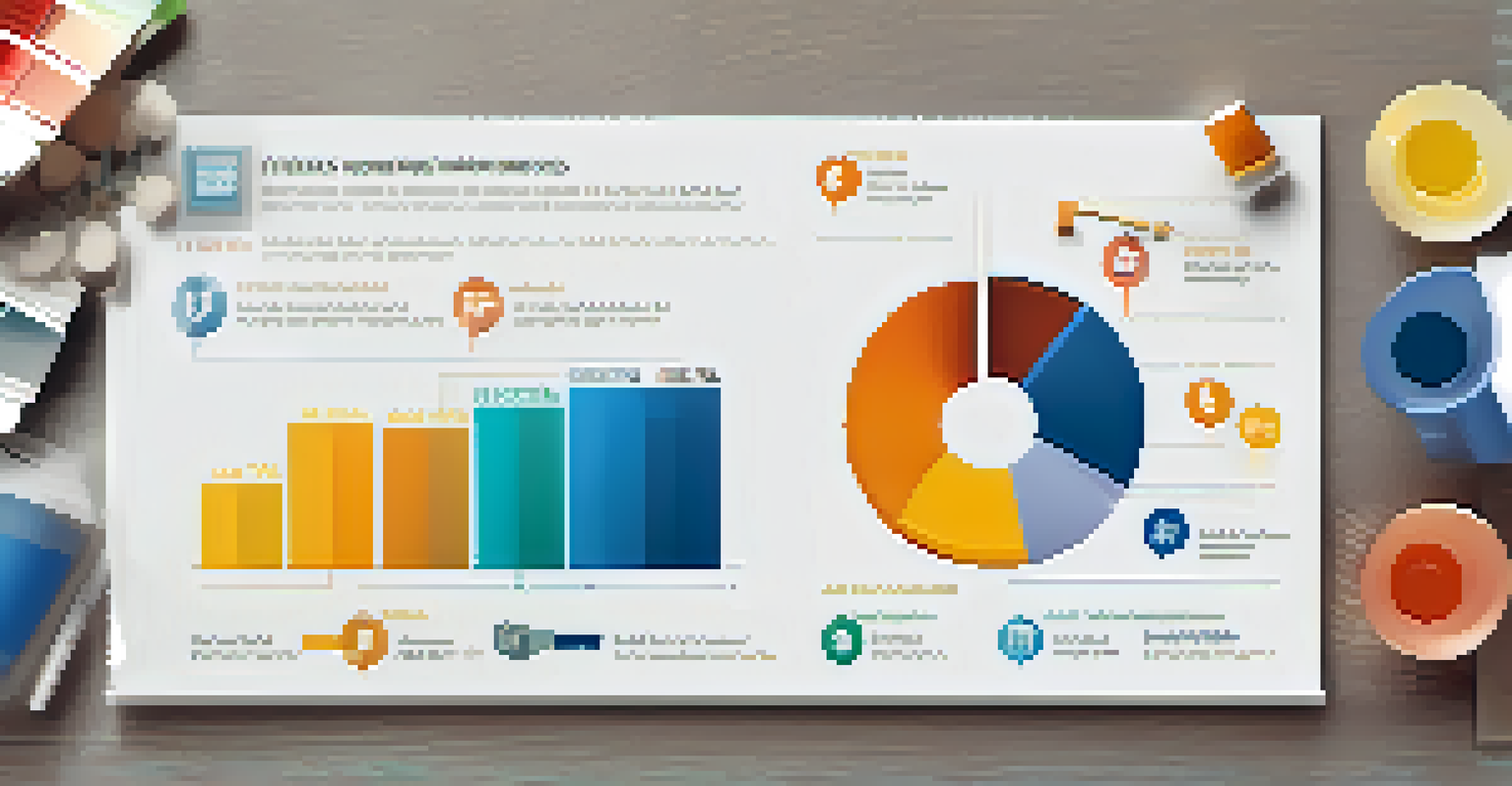Common Misconceptions About Closing Costs in Real Estate

Closing Costs Are Just Fees Paid to the Lender
One of the biggest misconceptions about closing costs is that they only include fees paid to the lender. In reality, closing costs encompass a variety of expenses, including appraisal fees, title insurance, and escrow fees. Think of it like planning a party; it's not just the venue that costs money, but also the catering, decorations, and entertainment.
The best way to predict the future is to create it.
When buyers think only of lender fees, they may be caught off guard by the total amount due at closing. It's crucial to understand that these costs can add up quickly, sometimes reaching several thousand dollars. A thorough breakdown of the costs involved will help you budget accordingly and avoid any surprises.
By being aware of all the different components of closing costs, buyers can better prepare themselves financially. Knowing what to expect will not only make the process smoother but also instill greater confidence when navigating the real estate market.
Closing Costs Are Fixed and Cannot Be Negotiated
Many people believe that closing costs are set in stone and cannot be negotiated. While there are standard fees that are typically charged, many of these costs can indeed be negotiated with your lender or service providers. It's similar to shopping for a car; the sticker price isn't always the final price.

For instance, buyers can often request a reduction in fees or shop around for better rates on services like home inspections and title insurance. Engaging in these negotiations can lead to significant savings, making it essential to approach closing costs with an open and proactive mindset.
Closing Costs Include Multiple Fees
Closing costs are not just lender fees; they encompass a variety of expenses such as appraisal fees, title insurance, and escrow fees.
Being informed about the potential for negotiation empowers buyers and encourages them to ask questions. This proactive approach can lead to a more favorable financial outcome and a better overall experience during the closing process.
All Closing Costs Are Paid Upfront
Another common myth is that all closing costs must be paid in full at the time of closing. While some fees do need to be covered upfront, others can be rolled into your mortgage or paid over time. This flexibility can make a significant difference for buyers who may be stretching their budgets.
The only thing worse than being blind is having sight but no vision.
For example, some lenders offer options where certain closing costs, like origination fees, can be financed as part of the loan amount. This means buyers can focus on putting down a larger deposit instead of worrying about every single fee due at closing.
Understanding the various payment options allows buyers to create a financial strategy that works for them. By exploring different financing possibilities, you can ease the burden of upfront costs and still secure the home of your dreams.
First-Time Buyers Have No Closing Costs
It's a common belief that first-time homebuyers are exempt from closing costs. While there may be assistance programs available that help with these expenses, it's important to note that closing costs still exist for everyone. Just because you’re a first-time buyer doesn’t mean you can skip this step of the process.
Many first-time buyers are surprised to learn about the various fees involved once they start the home-buying journey. Even if they qualify for grants or programs that cover part of these costs, they should still budget for their share. It’s like assuming you can go out for dinner without budgeting for the tip; it’s essential to plan for all expenses.
Negotiation Can Lower Closing Costs
Many closing costs are negotiable, allowing buyers to request reductions or shop around for better rates on services.
Being aware of potential costs helps first-time buyers avoid unexpected financial strain. By doing your research and understanding what closing costs entail, you can approach homeownership with confidence and clarity.
Closing Costs Are the Same Everywhere
Some buyers mistakenly think that closing costs are uniform across the board, regardless of where they purchase a property. However, these costs can vary significantly from one location to another due to local regulations, taxes, and market conditions. It's akin to the difference in prices for groceries at various stores; the same items can have vastly different price tags.
For example, states with higher property taxes may have higher closing costs compared to those with lower rates. This variability emphasizes the importance of understanding local market dynamics and how they affect your overall expenses.
It's beneficial to research the specific closing costs in your area to get a clearer picture of what to expect. Knowing the local landscape can save you money and help you make informed decisions throughout the buying process.
Homeowners Insurance Is Always Included in Closing Costs
Another misconception is that homeowners insurance is always included in closing costs. While it’s a crucial expense when purchasing a home, homeowners insurance is typically paid separately and not bundled with closing costs. Think of it like buying a car; the insurance is an additional expense on top of the purchase price.
Though buyers may need to provide proof of insurance at closing, that cost usually isn’t factored into the closing cost calculations. It’s essential to budget for this expense separately to avoid surprises when the time comes to secure your insurance policy.
Not All Costs Are Paid Upfront
Some closing costs can be financed or paid over time, providing flexibility for buyers managing their budgets.
Understanding this distinction allows buyers to better plan their finances. By accounting for homeowners insurance as a separate line item, you can ensure you're fully prepared for all expenses related to homeownership.
You Can Skip Closing Costs by Using a No-Closing-Cost Loan
Some borrowers believe that opting for a no-closing-cost loan means they can completely avoid these fees. While these loans can minimize upfront costs, they often come with higher interest rates or additional fees rolled into the loan. It's like choosing a cheaper meal at a restaurant only to find out it comes with a hefty service charge.
This type of loan might seem attractive, but it’s essential to calculate the long-term implications. Over time, the higher interest rates could end up costing you more than if you had paid the closing costs upfront.

Understanding the trade-offs is crucial for making informed financial decisions. Before agreeing to a no-closing-cost loan, be sure to weigh the pros and cons to see if it aligns with your financial goals.
Closing Costs Are Non-Negotiable and Standardized
Finally, many people think that closing costs are entirely standardized and non-negotiable. This isn't the case; while some fees are common, they can vary based on the lender, location, and specific circumstances of the transaction. It’s akin to buying a ticket for a concert; the price may vary based on the seat location and popularity of the artist.
Buyers should feel empowered to ask about each fee and whether there's room for negotiation. Many lenders and service providers are willing to work with buyers to create a more favorable financial arrangement.
Being proactive and informed can lead to better outcomes. By engaging in discussions about closing costs, buyers can help ensure they are getting the best deal possible, making the journey to homeownership a little less daunting.